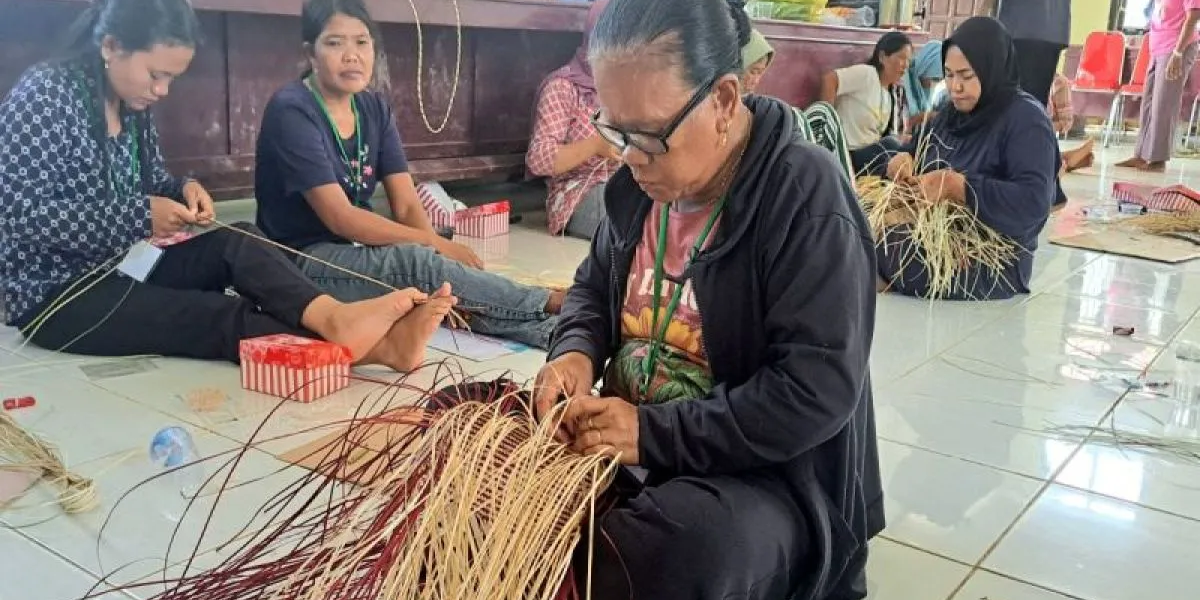Astra Agro is collaborating with micro, small, and medium enterprises (MSMEs) to promote the traditional rattan weaving of the Dayak Tomun community.
In partnership with the Government of North Arut District (Aruta) in West Kotawaringin Regency (Kobar), Central Kalimantan, Astra Agro is providing annual training in rattan weaving crafts for the Dayak Tomun tribe across three villages in the sub-district.
This initiative aims to strengthen the potential for cultural tourism by developing the creative economy surrounding rattan weaving, a unique art form of the Dayak tribe.
“Rattan weaving is an integral part of the Dayak tribe’s identity. Through creative economic development, we can enhance this potential into a form of cultural tourism that supports the welfare of the Dayak Tomun community,” said Febriansyah, Community Development Area Manager of Astra Agro’s Central Kalimantan Region, during a visit to Pangkalan Bun on Friday.
The training is being facilitated by two of Astra Agro’s subsidiaries in Central Kalimantan Province: PT Surya Indah Nusantara Pagi and PT Persadabina Nusantara Abadi (PT SINP-PBNA).
Historically, rattan has played a significant role in the culture of the Dayak tribe in Kalimantan, including the Tomun Dayak community. It is commonly used not only as a raw material for handicrafts but also in various traditional ceremonies and celebrations, as well as for food.
In modern times, woven rattan has become a popular choice for tourists searching for souvenirs. Beyond mere accessories, Dayak rattan weaving embodies cultural aesthetic values derived from traditional elements and the rich life of the Dayak Tomun tribe, as well as their relationships with the community, nature, and spirituality.
Wawan, the Head of the Welfare Section of North Arut Sub-district, emphasized that the collaboration with PT SINP-PBNA has invigorated their efforts, especially in knowledge enhancement and product marketing.
“This partnership is continuously evolving to establish a tourism village that combines both natural and cultural tourism in the Pangkalan Bun area,” he stated.
By integrating culture and the environment, PT SINP-PBNA and North Arut Sub-district are promoting tourism that offers unique experiences that highlight both nature and the heritage of the Dayak Tomun tribe. The tourism village will provide a comprehensive tour experience in collaboration with local tour agents.
“We actively promote these offerings through tour agents and expos, with the assistance of PT SINP-PBNA or Astra Agro Group,” he noted.
With the development of the tourist village, visitors will have easy access to souvenir shops selling bags, bracelets, and rattan-woven hats that are characteristic of the Dayak Tomun.
“Additionally, tourists will have special opportunity to visit a rattan weaver, making for a memorable experience,” Wawan added.
Source: Antara News Kalteng
Disclaimer
This article may contain copyrighted material, the use of which may not have been pre-authorized by the copyright owner. This material is made available for the purpose of giving information and knowledge. The material contained on the Astra Agro website distributed without profit. If you are interested in using copyrighted material from this material for any reason that goes beyond ‘fair use’, you must first obtain permission from the original source










